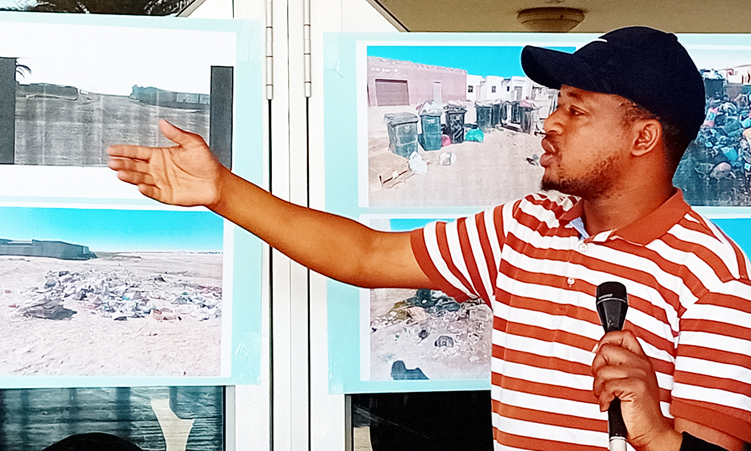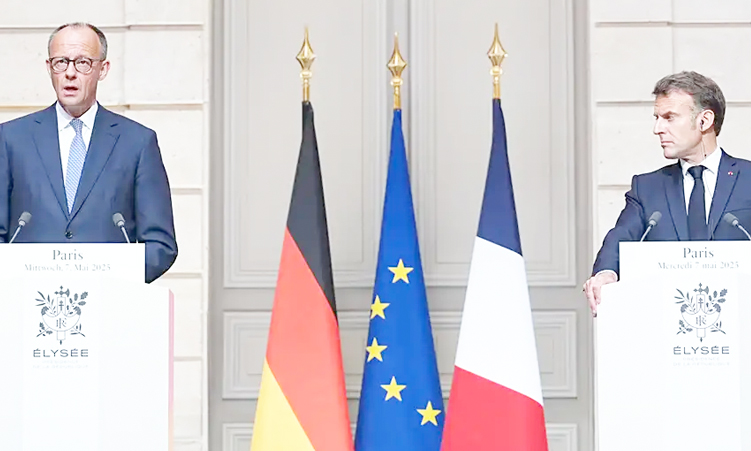HARARE – A strike over Zimbabwe’s razing of shantytowns made a slow start yesterday and the opposition boycotted President Robert Mugabe’s opening of a new parliament elected in polls critics said were unfair.
Analysts said the two-day stay-away was a major test for the opposition Movement for Democratic Change (MDC) after its crushing defeat in the March 31 parliamentary election which it says was rigged by Mugabe’s ruling Zanu-PF party. They said the protest action would gauge the opposition’s capacity to rally its supporters behind the protests, which in the past have been crushed by the country’s security forces.All 41 MDC members of the 150-seat parliament boycotted Mugabe’s official opening of parliament.A party representative said the boycott was part of the strike action.But analysts said the party’s decision to wait until Wednesday to back a strike call by civic groups smacked of indecision within the MDC leadership, and may have undermined the public’s willingness to take part.While early morning traffic appeared lighter than usual in the capital Harare, most major industrial sites and firms in the central business district were open and employees at work.Reports painted a similar picture around the country.Police have warned against the protests and set up roadblocks along most highways leading into Harare, searching cars at random.There were no early reports of trouble.The main labour federation, the Zimbabwe Congress of Trade Unions said police had arrested three of its activists for organising the strike in the second city Bulawayo.But police denied the arrests, dismissing the strike as a “non-event”.Thousands of people have had informal business premises razed and goods confiscated in the clean-up campaign, which authorities say aims to root out crime, including illegal trade in scant foreign currency and basic commodities like sugar.But the precise extent of the crackdown is hard to measure.Police said a week ago they had arrested nearly 23 000 people.The MDC says the ongoing crackdown is a vindictive drive against its mostly urban support base, but Heneri Dzinotyiwei of the University of Zimbabwe said the party had undermined the strike by waiting until Wednesday to commit to it.- Nampa-ReutersThey said the protest action would gauge the opposition’s capacity to rally its supporters behind the protests, which in the past have been crushed by the country’s security forces.All 41 MDC members of the 150-seat parliament boycotted Mugabe’s official opening of parliament.A party representative said the boycott was part of the strike action.But analysts said the party’s decision to wait until Wednesday to back a strike call by civic groups smacked of indecision within the MDC leadership, and may have undermined the public’s willingness to take part.While early morning traffic appeared lighter than usual in the capital Harare, most major industrial sites and firms in the central business district were open and employees at work.Reports painted a similar picture around the country.Police have warned against the protests and set up roadblocks along most highways leading into Harare, searching cars at random.There were no early reports of trouble.The main labour federation, the Zimbabwe Congress of Trade Unions said police had arrested three of its activists for organising the strike in the second city Bulawayo.But police denied the arrests, dismissing the strike as a “non-event”.Thousands of people have had informal business premises razed and goods confiscated in the clean-up campaign, which authorities say aims to root out crime, including illegal trade in scant foreign currency and basic commodities like sugar.But the precise extent of the crackdown is hard to measure.Police said a week ago they had arrested nearly 23 000 people.The MDC says the ongoing crackdown is a vindictive drive against its mostly urban support base, but Heneri Dzinotyiwei of the University of Zimbabwe said the party had undermined the strike by waiting until Wednesday to commit to it.- Nampa-Reuters
Stay informed with The Namibian – your source for credible journalism. Get in-depth reporting and opinions for
only N$85 a month. Invest in journalism, invest in democracy –
Subscribe Now!










